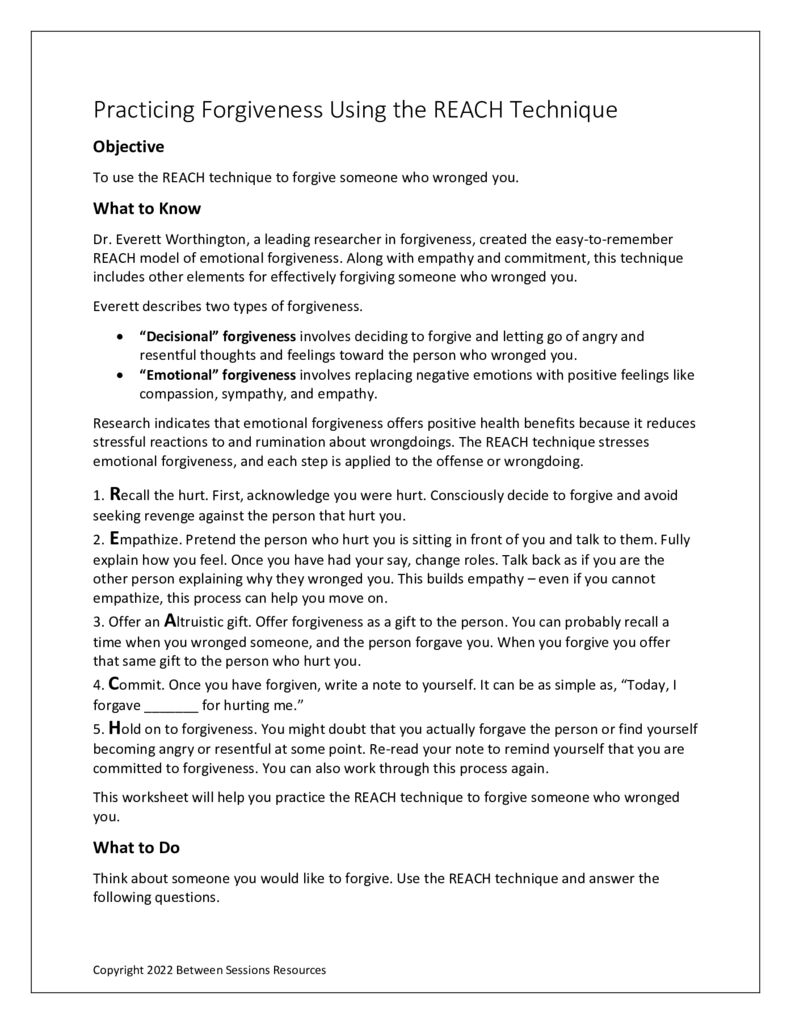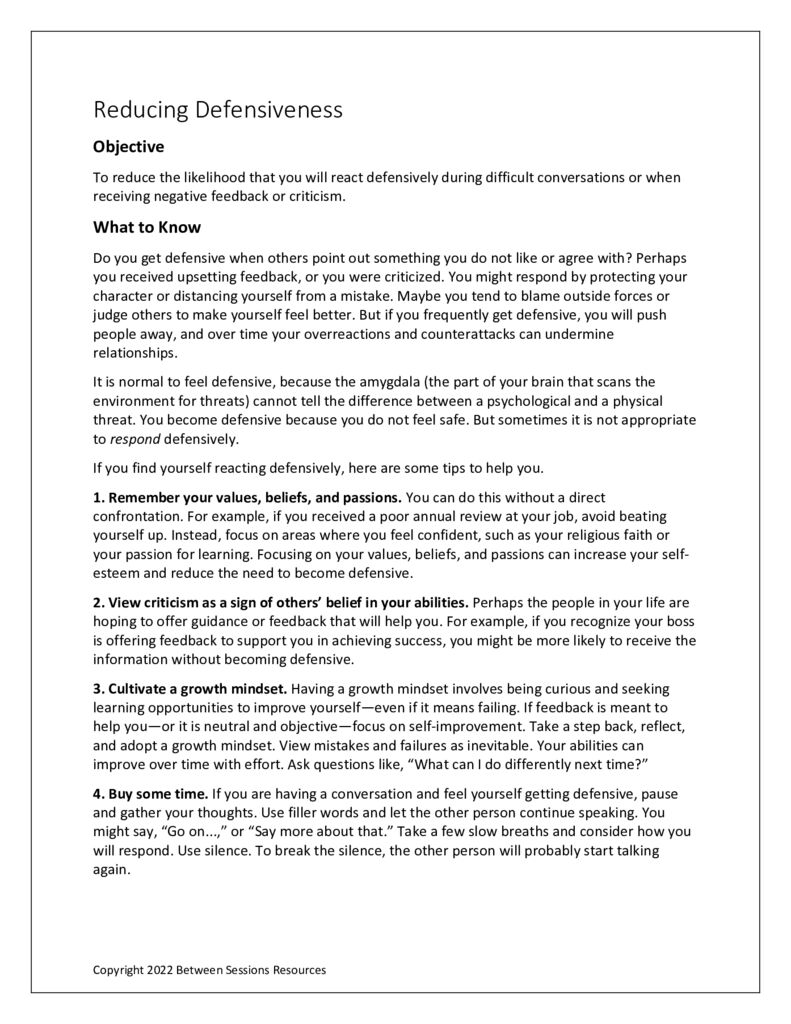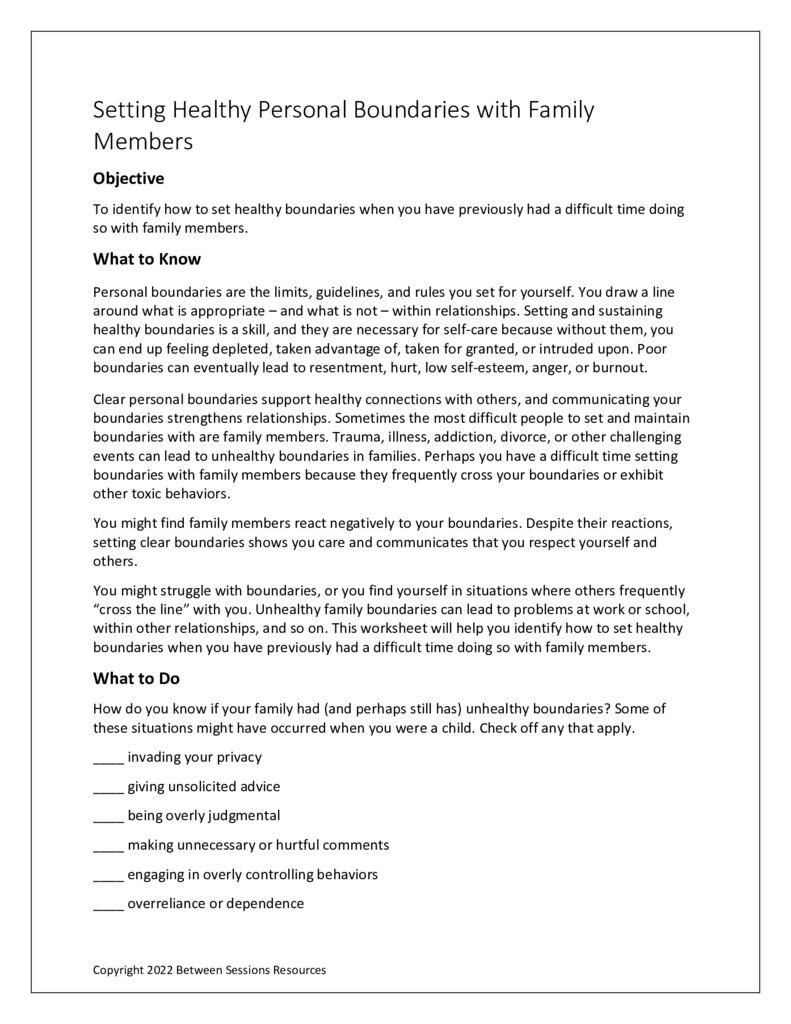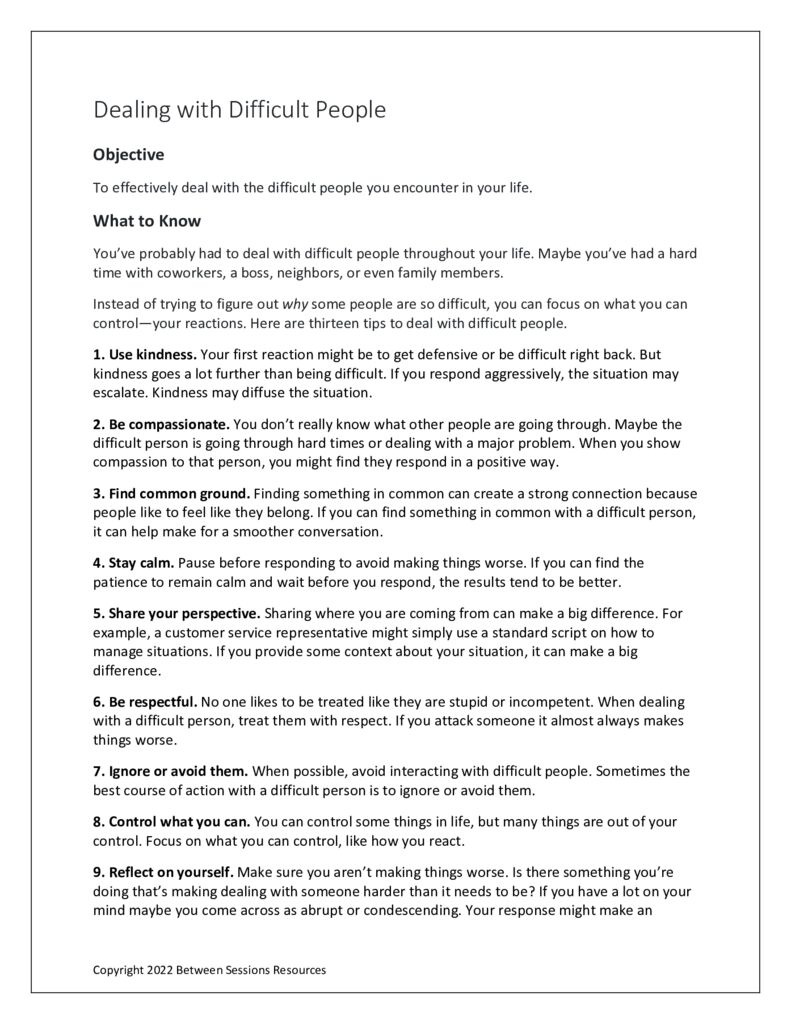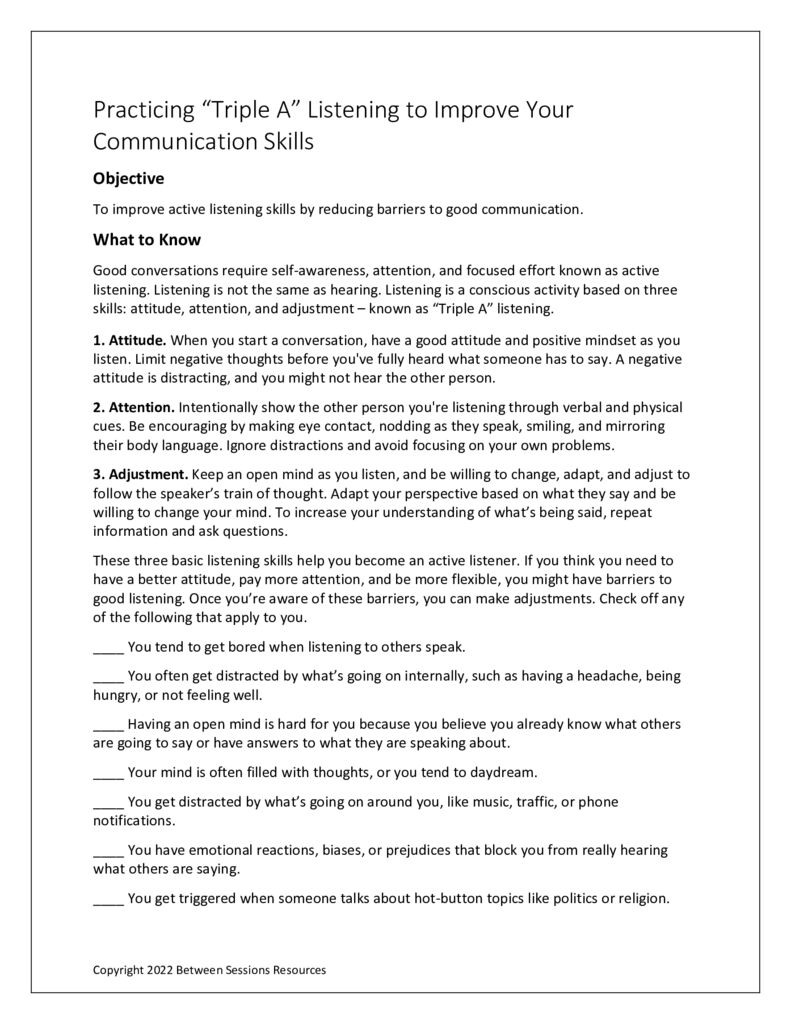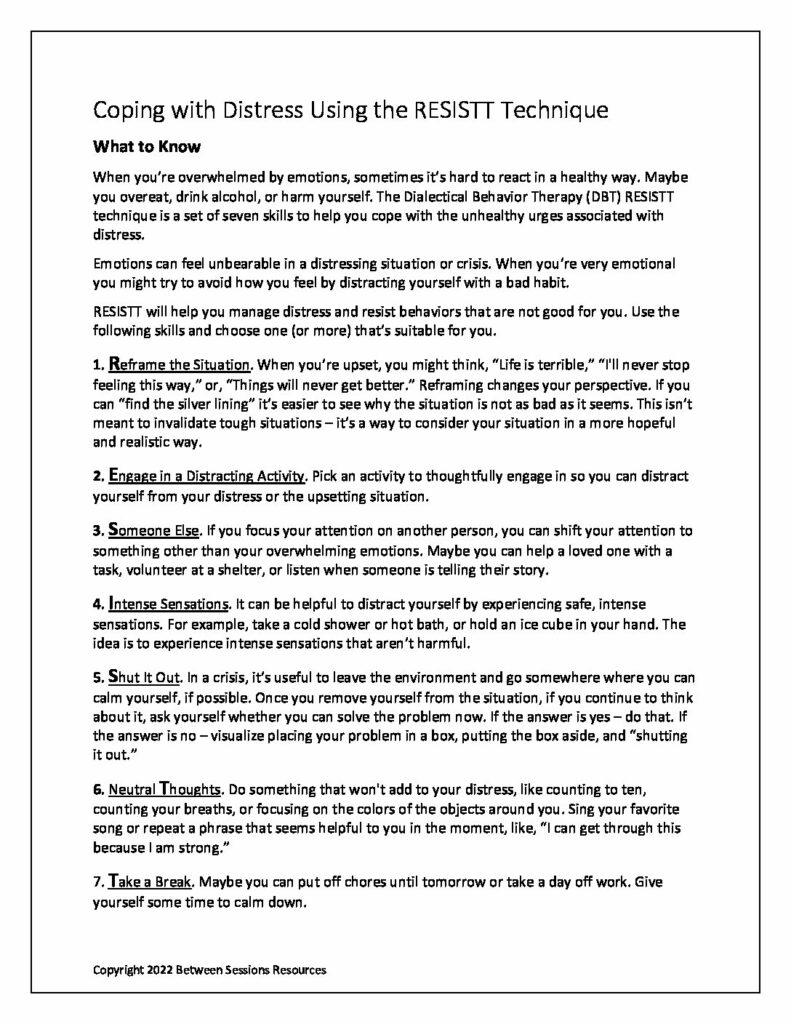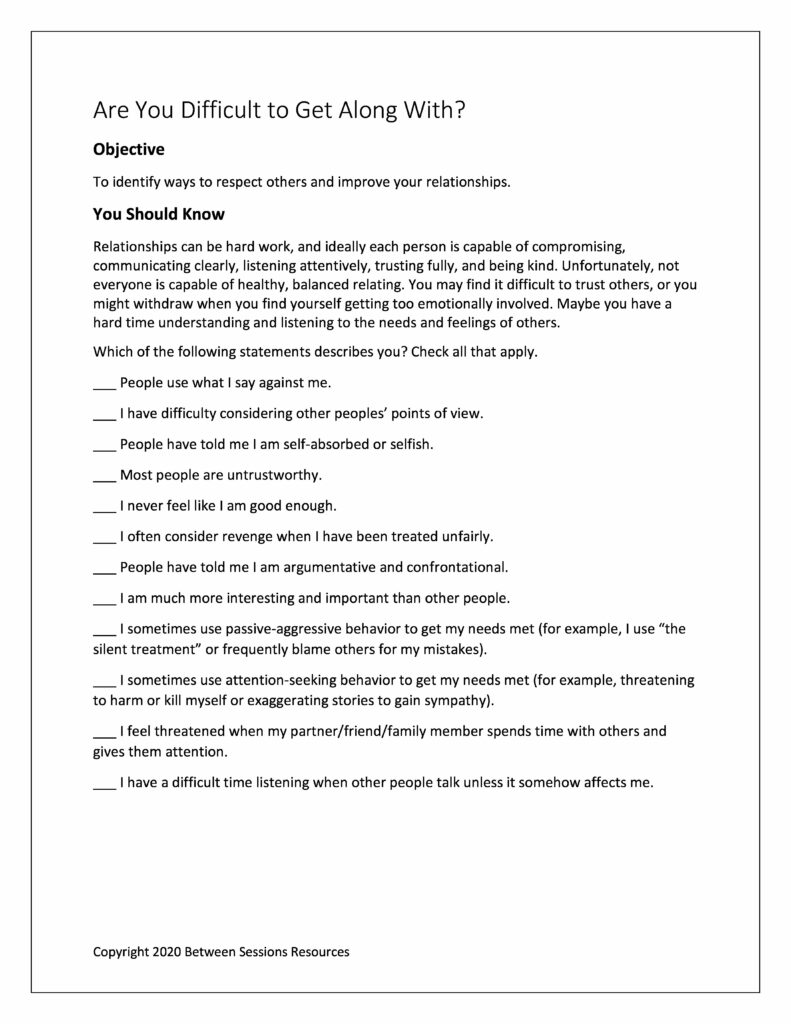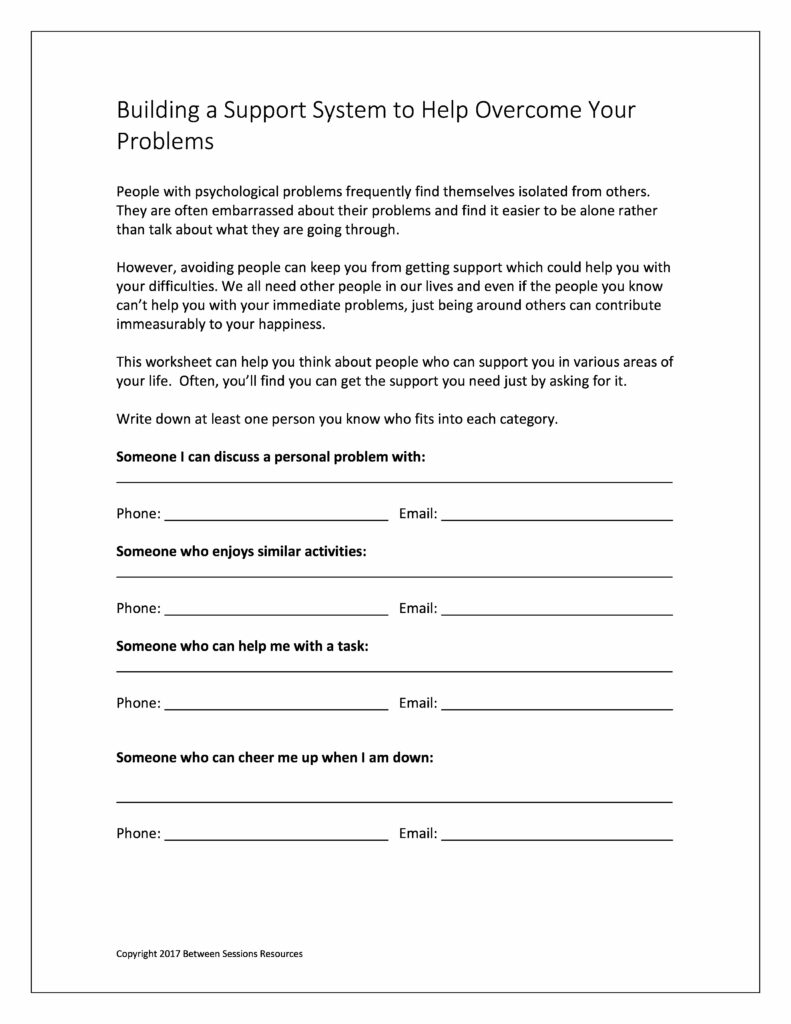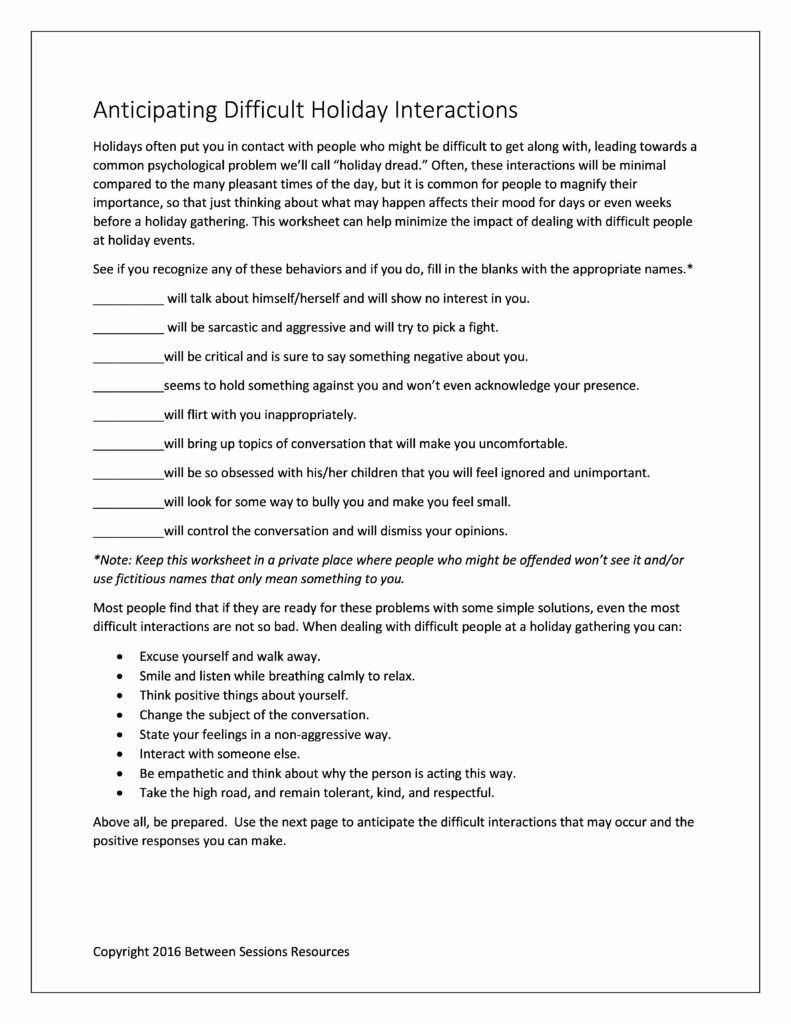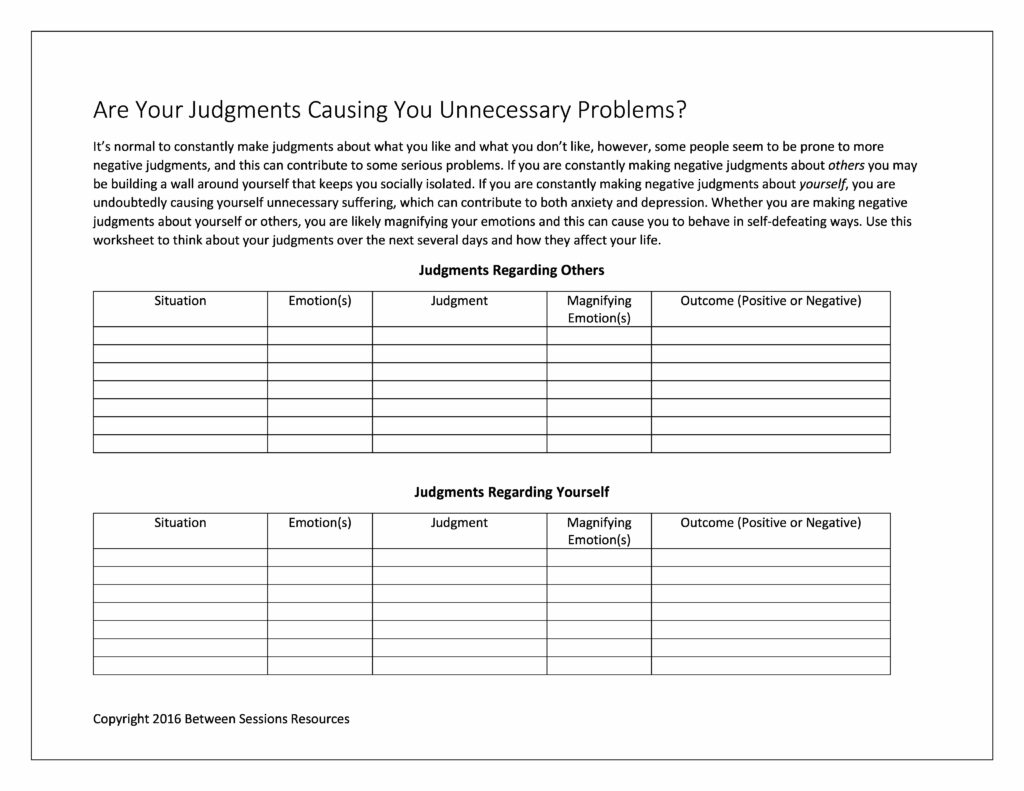This worksheet gives people a 5-step approach to learning how to forgive others in a way that will build positively affect relationships. This technique is highly recommended for use in marital and family therapy. (0422, forgiveness, relationships, communication)
This worksheet is designed to help people who typically react defensively when they receive negative feedback or criticism. The worksheet gives 11 strategies to reduce defensiveness and a “quiz” which can help people determine if they are becoming less defensive. (0422, communication, relationships)
This worksheet is designed to help people see when boundaries are a problem in their families. It suggests ways for people to deal with others who are crossing boundaries and suggests things people can do if they have difficulty in establishing personal boundaries. (0422, boundaries, relationships, family therapy,
Dealing with difficult people can be a significant stress for many people, but this worksheet gives you practical techniques to help reduce this stress. The worksheet also includes a chart to help you evaluate the interactions you have with the difficult people in your life and determine what helps and what doesn’t. (0322, social skills, relationships, interpersonal skills, DBT)
This worksheet describes a “Triple-A Technique” listening technique that involves: Attitude, Attention, and Adjustment. It includes a brief assessment to help people see if they have problems in listening and lists some basic active listening skills. The worksheet includes a chart to help people practice this technique. (0322, communication, listening skills, ADHD, ASD, Asperger Syndrome)
The RESISTT Technique is a DBT technique to help people deal with overwhelming emotions. The acronym stands for: Reframe the Situation, Engage in a Distracting Activity, Someone Else, Intense Sensation, Shut it Out, Neutral Thoughts. The worksheet helps people understand how each technique can help them in regulating their emotions. (0122, DBT, Dialectical Behavior Therapy, emotional regulation)
This worksheet teaches people the GIVE technique: be gentle, show interest, validate, use an easy manner. It encourages people to use aspects of this technique in difficult interactions.
This worksheet is designed to help people build a support system to not only address an immediate problem, but to enhance the quality of their lives.
This worksheet is designed to help people deal with difficult interactions during a holiday event. The worksheet asks the user to think about what kind of difficult interactions are likely to occur and consider positive ways to respond.
This worksheet is designed to help people think about their negative judgements and how these affect their moods and behavior. The worksheet asks individuals to think about how they judge others as well as themselves.

